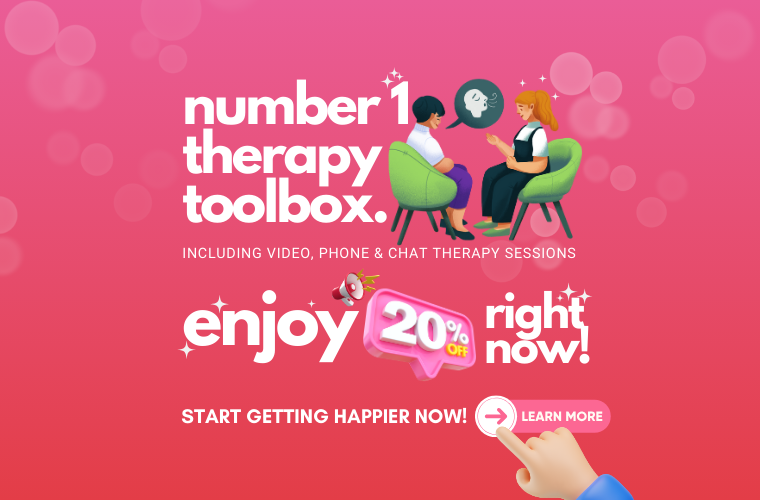Kleptomania Test: A Comprehensive Self-Assessment
When the urge to steal becomes a persistent challenge, it may signal a deeper issue. Kleptomania, a mental health condition often misunderstood and overlooked, can deeply impact lives. Our test offers insight into this impulse control disorder, guiding you toward understanding and overcoming these irresistible urges.
What Is Kleptomania?
Kleptomania, as classified in psychiatry, is an impulse control disorder. People with kleptomania experience a recurring impulse to steal items, often without any need for them.
People with this condition often have other issues too, like depression, anxiety, eating disorders, or conduct disorders. Getting professional help can help in managing it.
Why Take The Kleptomania Test?
This test is a tool to help those experiencing recurrent urges to steal. Identifying how often and intensely you feel the urge to steal helps determine if your experiences match kleptomania symptoms. Taking this step is crucial in seeking treatment and understanding your mental health condition.
Expert Insight
In the 1900s, French psychiatrists first identified behaviors indicative of kleptomania. Their contemporary approaches, however, restricted a deeper comprehension of the disorder. By the year 1890, numerous case studies on kleptomania had accumulated.
Many psychiatrists of that era considered kleptomania to be linked to a lack of maturity, mirroring the impulsive behavior often seen in young children who take things without thought. These observations from French and German psychiatrists eventually played a key role in the psychoanalytic understanding of kleptomania.
Kleptomania’s main traits suggest it might belong to the obsessive-compulsive spectrum, yet it also shows similarities with addictive and mood disorders.
Often underdiagnosed, kleptomania commonly coexists with other psychiatric conditions, including anxiety, eating disorders, and alcohol and substance abuse. Treatments for patients with kleptomania typically focus on these co-occurring issues rather than directly addressing kleptomania.
In the past century, there has been a notable shift from psychotherapeutic to psychopharmacological treatments for kleptomania. The use of selective serotonin reuptake inhibitors (SSRIs), mood stabilizers, opioid receptor antagonists, other antidepressants, and cognitive behavioral therapy has shown promising outcomes. Nonetheless, there have been instances where SSRIs have triggered kleptomania.
How the Kleptomania Test Works
The kleptomania test evaluates the frequency of your urges to steal items and your ability to resist these urges. It also assesses the emotional aftermath of stealing, such as guilt or relief, which are key indicators of kleptomania.
Scoring is assigned as follows:
- Never: 0 points
- Rarely: 1 point
- Sometimes: 2 points
- Often: 3 points
- Always: 4 points
Interpreting Your Test Results
Score Categories:
- 0-10 Points: Minimal Indication
- 11-20 Points: Mild Indication
- 21-30 Points: Moderate Indication
- 31-40 Points: High Indication
- 41-50 Points: Very High Indication
Based on your score, we offer insights and recommendations. A higher score, indicating strong and frequent urges to steal, could suggest kleptomania. We recommend considering professional advice in such cases, as it’s an important step towards understanding and managing your experiences.
Recommendations to Prevent it:
Recommendations will vary based on your score. They may include strategies to resist the urge to steal, seeking therapy for associated conditions like antisocial personality disorder or obsessive-compulsive disorder, and understanding the impact of this impulse control disorder on your life.
Important Note
Our kleptomania test does not replace professional diagnosis. If you suspect you might be diagnosed with kleptomania, consult a healthcare professional.
Instructions:
Answer each question honestly based on your recent experiences. Remember, this test is for self-assessment and personal insight.
Disclaimer
This test is for informational purposes only and does not constitute medical advice. For a formal diagnosis or treatment, please consult a healthcare professional.
Try Other Personality Tests:
- Free Passive-Aggressive Test
- Impulse Control Disorder Quiz
- Free Online Cluster B Personality Test
- Imposter Syndrome Test
The questions in this test are designed to help identify signs of kleptomania. They delve into aspects such as the impulse to steal, the emotional response to stealing, and the impact of stolen items on one’s life. This self-assessment can be a vital step for people with kleptomania to understand their condition and seek appropriate treatment.
- Question of
How often do you feel an uncontrollable urge to steal items?
- Never
- Rarely
- Sometimes
- Often
- Very Often
Correct Wrong
- Question of
Do you find yourself stealing items that you don’t need?
- Never
- Rarely
- Sometimes
- Often
- Very Often
Correct Wrong
- Question of
How often do you feel anxious or uneasy if you resist the urge to steal?
- Never
- Rarely
- Sometimes
- Often
- Very Often
Correct Wrong
- Question of
Do you feel a sense of relief or satisfaction after stealing?
- Never
- Rarely
- Sometimes
- Often
- Very Often
Correct Wrong
- Question of
How often do your stealing habits impact your daily life or relationships?
- Never
- Rarely
- Sometimes
- Often
- Very Often
Correct Wrong
- Question of
Do you hide or feel ashamed of the stolen items?
- Never
- Rarely
- Sometimes
- Often
- Very Often
Correct Wrong
- Question of
Have you ever sought treatment for impulses to steal?
- Never
- Rarely
- Sometimes
- Often
- Very Often
Correct Wrong
- Question of
Do you experience recurrent urges to steal even when it’s risky?
- Never
- Rarely
- Sometimes
- Often
- Very Often
Correct Wrong
- Question of
How often do you plan or think about stealing?
- Never
- Rarely
- Sometimes
- Often
- Very Often
Correct Wrong
- Question of
Do you have family members diagnosed with kleptomania or other impulse control disorders?
- No
- I’m not sure
- Yes, one family member
- Yes, two family members
- Yes, three or more family members
Correct Wrong
- Question of
How frequently do you return or feel guilty about the stolen items?
- Never
- Rarely
- Sometimes
- Often
- Very Often
Correct Wrong
- Question of
Do you also experience symptoms of other disorders like eating disorders or conduct disorders?
- Never
- Rarely
- Sometimes
- Often
- Very Often
Correct Wrong
- Question of
How often do you feel depressed or anxious about your stealing behavior?
- Never
- Rarely
- Sometimes
- Often
- Very Often
Correct Wrong
- Question of
Have you ever been diagnosed with any personality disorders?
- No
- Yes, one personality disorder
- Currently under evaluation for a personality disorder
- Prefer not to say
- Yes, more than one personality disorder
Correct Wrong
- Question of
Do you feel that your stealing is beyond your control?
- Never
- Rarely
- Sometimes
- Often
- Very Often
Correct Wrong


